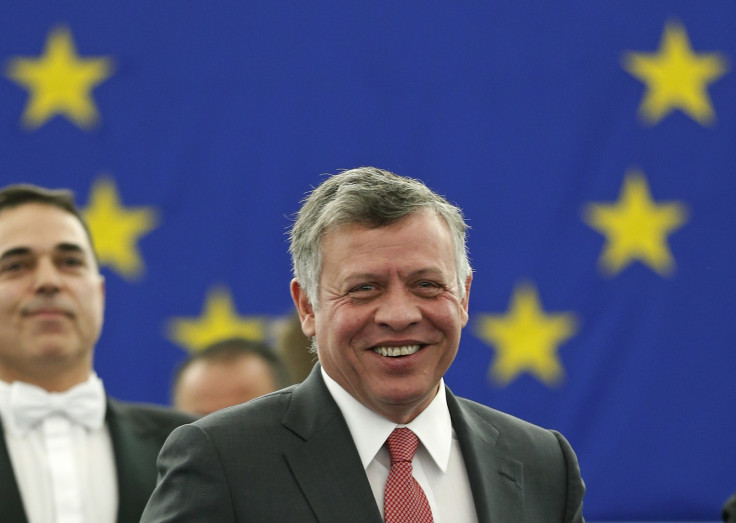King Abdullah of Jordan calls on Europe to battle Islamophobia

Jordan's King Abdullah has called on Europe to fight Islamophobia in a bid to temper extremism among its Muslim population.
In an address to the European Parliament on 10 March, 2015, in Strasbourg, France, Abdullah said European politicians and governments had a responsibility to reduce hostility towards Islam and help create conditions that reduced the chances of radicalisation among Muslims.
The Jordanian King praised Europe's "unbeatable courage" when responding to attacks like the Charlie Hebdo massacre in Paris in January. Along with his wife Queen Rania, Abdullah attended a solidarity march in Paris just days after gunmen stormed the offices of the satirical magazine and shot dead 11 people.
Speaking on 10 March, Abdullah criticised the magazine's use of cartoons depicting the Prophet Mohammed and urged European governments to do more to promote "mutual respect" and an "inclusive society."
"Insulting other peoples and their faiths and their convictions, this is no way forward," he told a chamber that included dozens of far-right members critical of Muslim immigration. "Europe is an important partner in this effort, especially in helping to stop the global rise in Islamophobia."
The French state has a troubled history with its Arab and Muslim population as a number of recent cases show. In 2005, a period of riots in a predominately Arab banlieue (suburb) of Paris led to so much violence that the government declared a state of emergency that lasted for three months. In 2012, a young Frenchman of Algerian origin, Mohamed Merah, killed seven people in and around the French city of Toulouse. He claimed to have links with al-Qaeda.
Tensions have risen between the French state and its Muslim population, often over perceived freedom to practice religion and the secular nature of the French state.
Former prime minister Nicolas Sarkozy's government banned wearing the niqab in 2010, a full face veil worn by conservative Muslim women. The legislation widened the rift between the French leaders and its Muslim population.
The Jordanian King added that the international community's failure to defend the rights of Palestinians "sends a dangerous message" and provides a "powerful rallying cry" for extremists. As one of the Arab states to have made peace with Israel, Jordan has often acted as a mediator in Israeli-Palestinian peace talks.
© Copyright IBTimes 2025. All rights reserved.






















